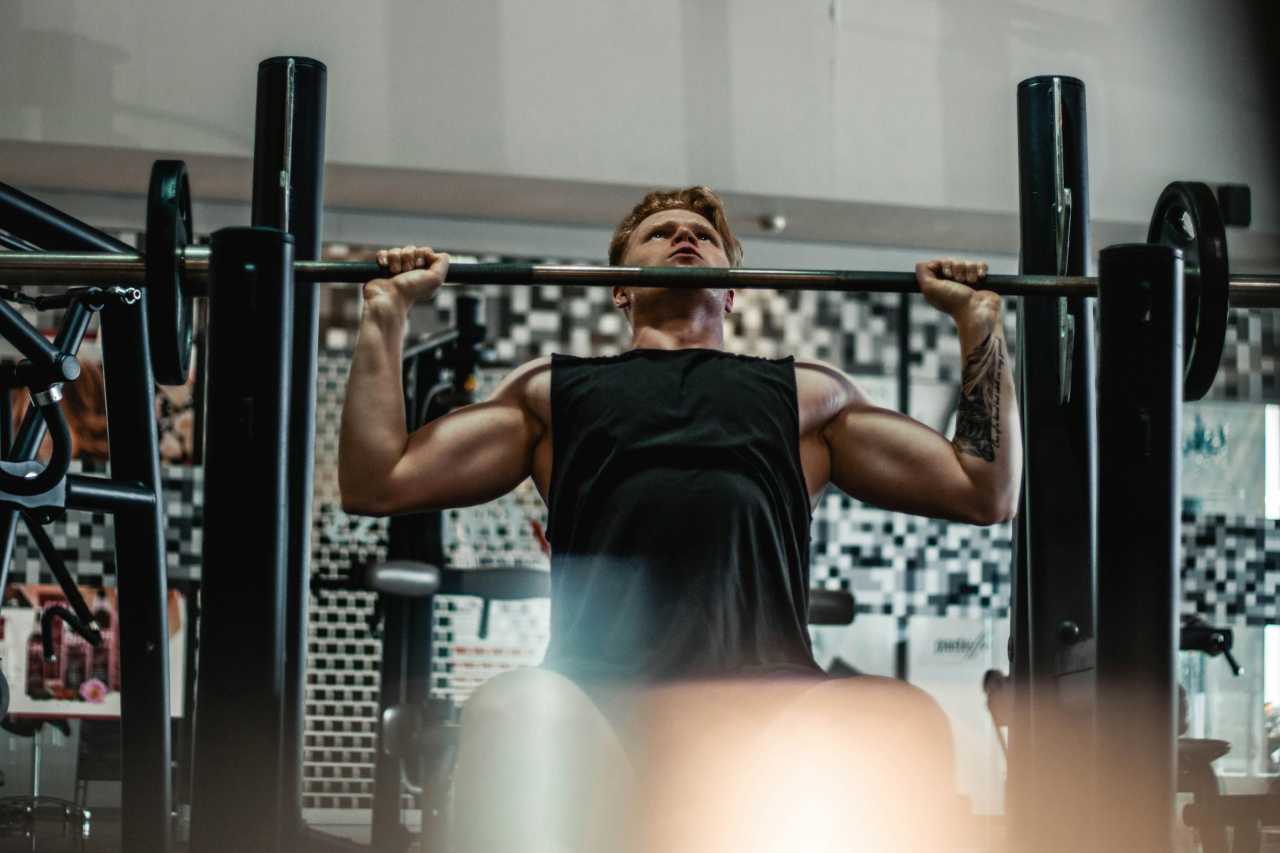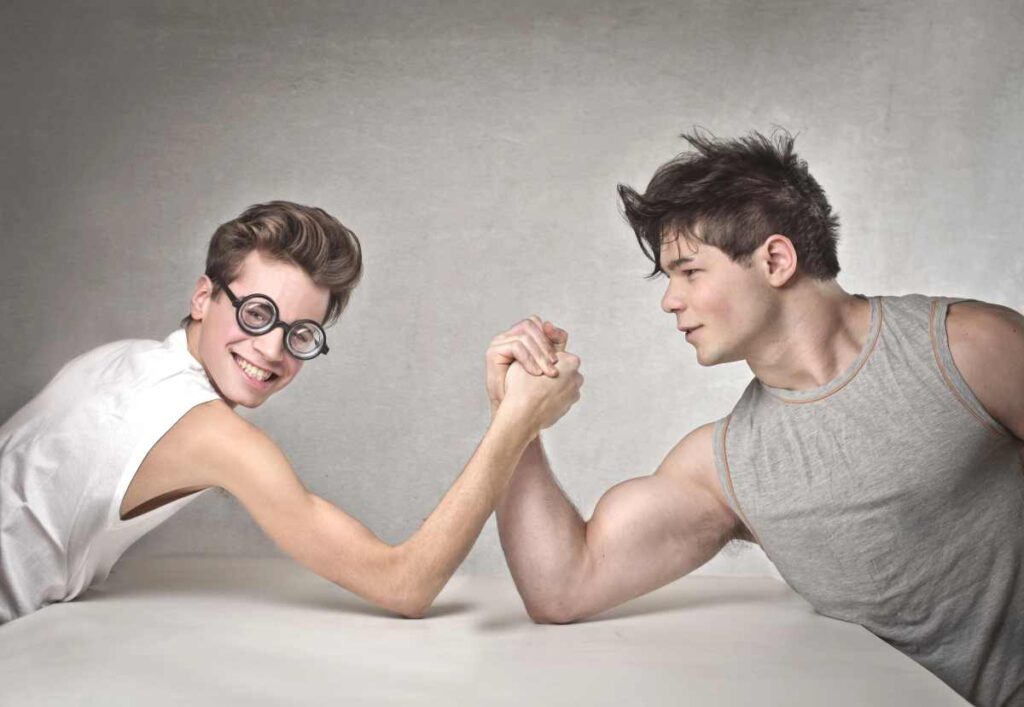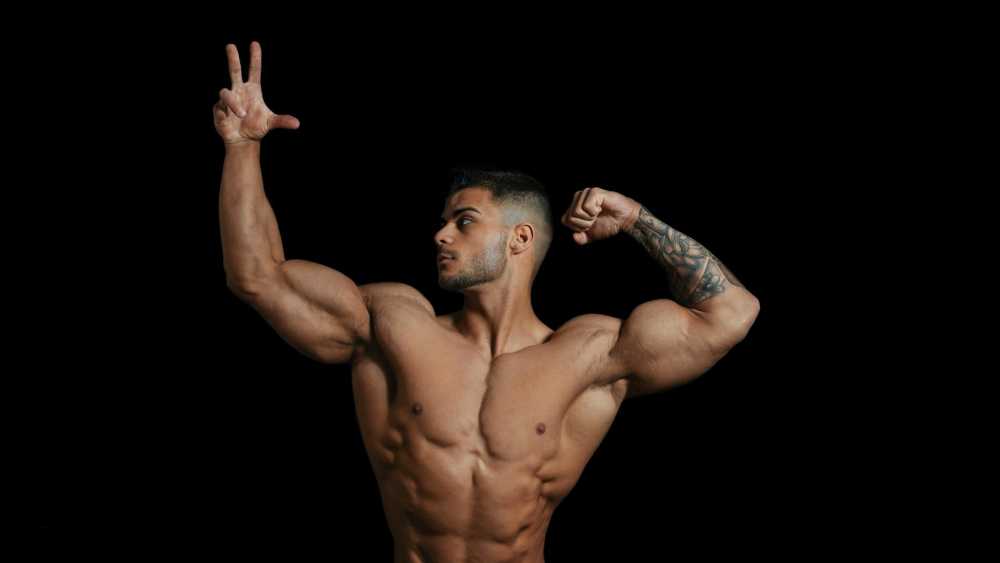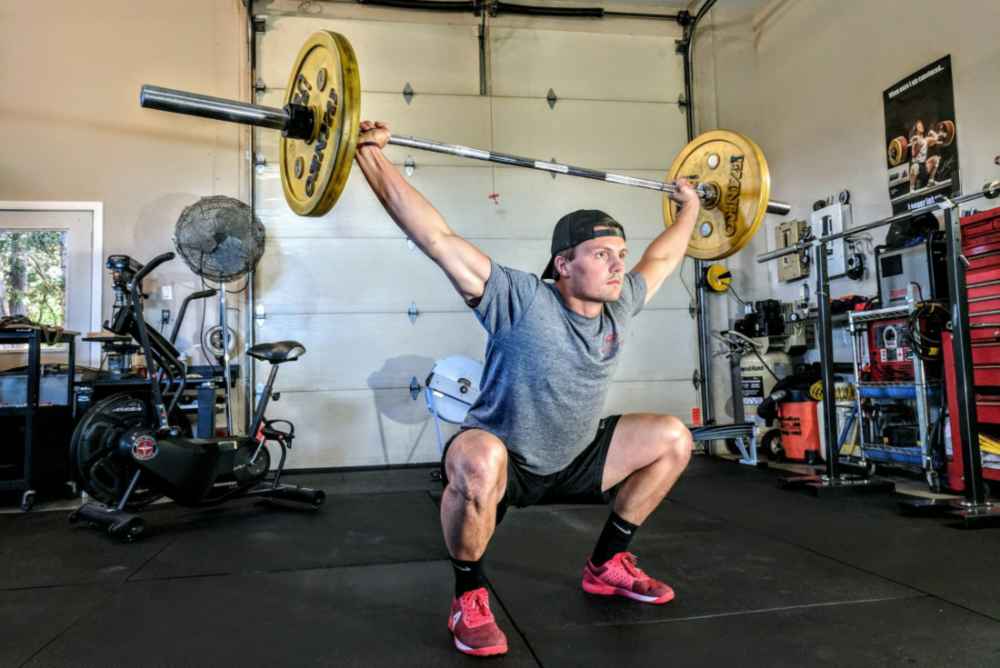Get In Touch
Info@fitfaysal.com

If you landed on this post, then you’re probably relatively big and muscular but not as strong as you want to be or as strong as people assume you are, OR, you just saw someone smaller than you lift way heavier than you can.
*Hurts your ego, I know*
And being stuck in this situation makes you feel kind of like a fraud.
Are these muscles even real? What’s the point of looking this jacked when I’m not strong?
Imagine that you solve this problem and get to the level where you’re actually satisfied with your strength relative to your size.
You’d get a huge boost in your confidence and self-esteem.
So, let’s understand why this happens—why you look big but weak—and cover some solutions for balancing strength and physique.
It is generally known and assumed that the bigger you are, the stronger you will be. In 90% of cases, this ideal would be true.
However, after taking a deep dive into what science and experiments are saying, it appears the relationship between muscle size and strength is more complicated and not as straightforward as we think.
I’m just touching the baseline, but here are three ways we respond to resistance training in terms of strength and muscle size:
The following factors determine how we respond to resistance training:
A study carried out on a group of men performing leg extension training showed that muscle activation (actively focusing to hit a specific muscle) increased muscle strength higher than just bigger muscles.
This is more common than we know, and it may give an answer to the phenomenon of why some people who are bigger and more muscular can be weaker than someone who is smaller.
So what point am I trying to make with all this?
My point is that muscle size and strength aren’t always black and white; in some cases, they don’t always equally correlate.
Normally, we would accept that bigger muscles mean more strength.
However, in rare cases where someone small is stronger than a much bigger person, it may be that they are just better and have put in more time doing whatever exercise or technique you’re using to measure strength, or just good old genetics.

Let’s get into the meat and potatoes *cringy saying* of what brought you to this post. Here are some interesting reasons why you look big but weak:
We all know the guy who calls out GENETICS!! every time he meets someone stronger than him. Well, it turns out he’s right (sometimes).
Some people’s bodies respond quicker to training and achieving muscle hypertrophy; this means they put on muscle quickly, which can leave their strength sagging behind relative to their muscle size.
Other people aren’t this lucky; they take way longer to put on muscle, which leaves them training longer, leading to their strength advancing while their muscle mass lags.
And in rare cases, some people are just naturally muscular and/or strong without as much effort; it’s an interesting and unfair anomaly.

Most of us aren’t powerlifters, or at least we don’t have that workout mindset.
We’re bodybuilders, so we do only what’s required; we train to develop muscle and look big while still being lean.
This type of training usually involves high repetitions and sets with as much weight as we feel we can handle for the required reps, which usually isn’t ‘mind-shakingly’ heavy in contrast to people who really push themselves to the limit.
We can still build muscle to a certain point using moderate weights and high reps. So, you may look big yet weak because you rarely, if ever, push yourself to failure with heavyweights.
“Congratulations, you’ve achieved failure, failure has been achieved, Thank God.”
Tom Platz
It’s a perception effect; vascular people, with veins popping out of their arms like wires, are perceived to be stronger, but this isn’t always the case.
I’ve met people who were very vascular naturally but weren’t much stronger than the next person.
And it’s not just me saying this:
“Vascularity isn’t a sign of strength, but it can be a sign of fitness”
MensHealth
There is no direct correlation between vascularity and strength, so don’t think you or someone you see is strong just because they’re veiny.

Your technique can either make you or break you.
Someone with improper form may “lift heavier” (cue the gym bros who look like they’re on a freaking swing when doing bicep curls) but be pretty weak in that particular exercise when doing proper form.
Also, YOU may be using proper form, which makes the workout difficult, leaving you and others thinking you’re weak.
Additionally, in some cases, different forms make an exercise easier, like sumo vs conventional deadlift; people argue one is easier than the other (I don’t have a stance on this.)
Is it just me, or is everyone on social media a freak of human nature with weights?
You too, right? Everyone claims they can bench 225; they even make the idea of benching 315 easy, which is nuts to me.
In reality, I rarely see people lifting that heavy around me. Here’s a scenario of what happens when an *Influencer* wants to make a workout video.
They pick up a very heavy weight that they usually won’t go near and then perform 1-3 reps on camera to make it look like that’s what they lift regularly.
But this is misleading; most people aren’t anomalies; people just want to impress others and seem bigger and/or stronger than they actually are.
This leaves regular people at home feeling weak. But don’t be fooled; lift hard, ignore the noise, push yourself, and you’ll get stronger.
Check out: The 4 Push-up Exercises You Need for a Full Chest
So, you now know why you look muscular yet weak, so what’s the solution? How can you balance your strength and physique?
The solution is pretty obvious and straightforward, so I won’t go too deep on this.
You get stronger with these 4 tips:
I like the valuable info you provide in your articles.
I’ll bookmark your weblog and check again here frequently.
I am quite sure I’ll learn many new stuff right here! Good luck for the next!